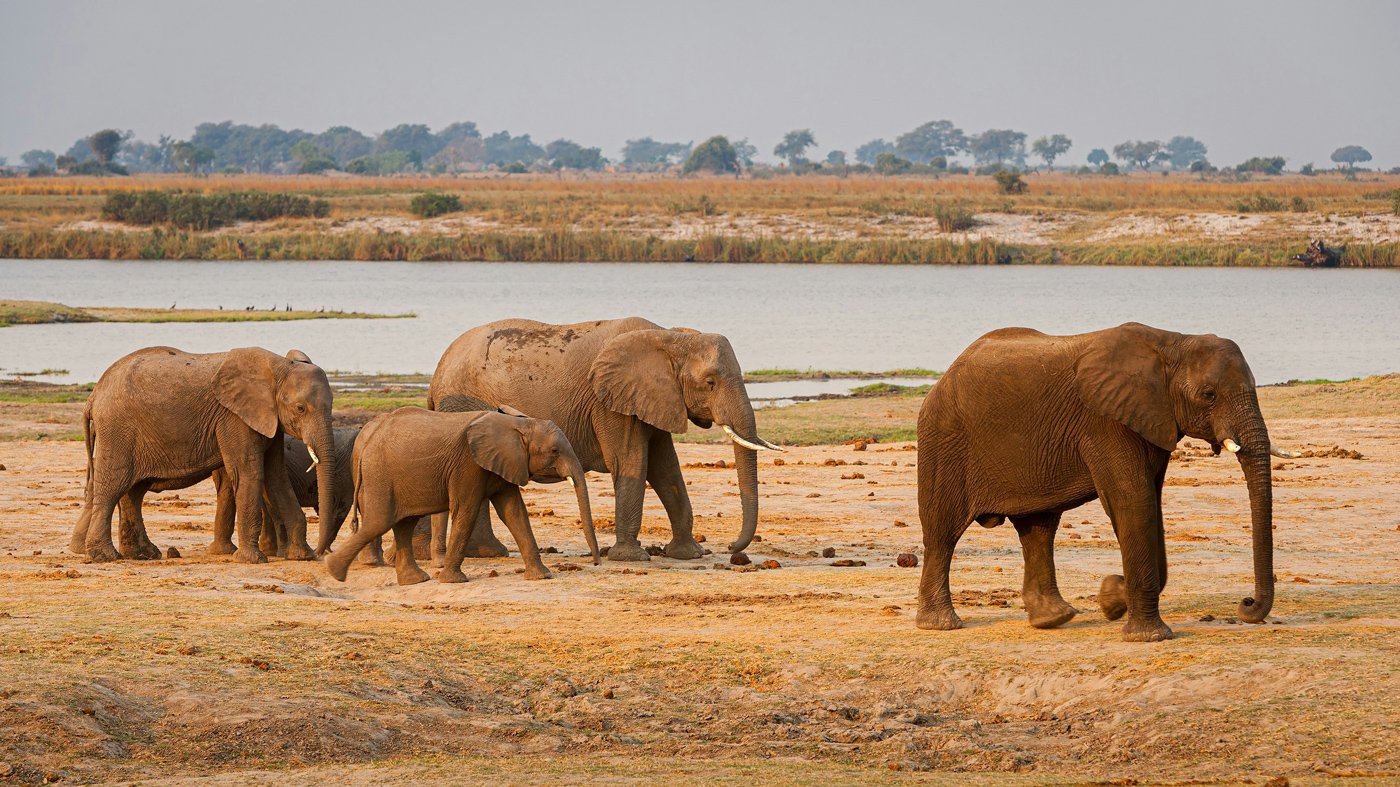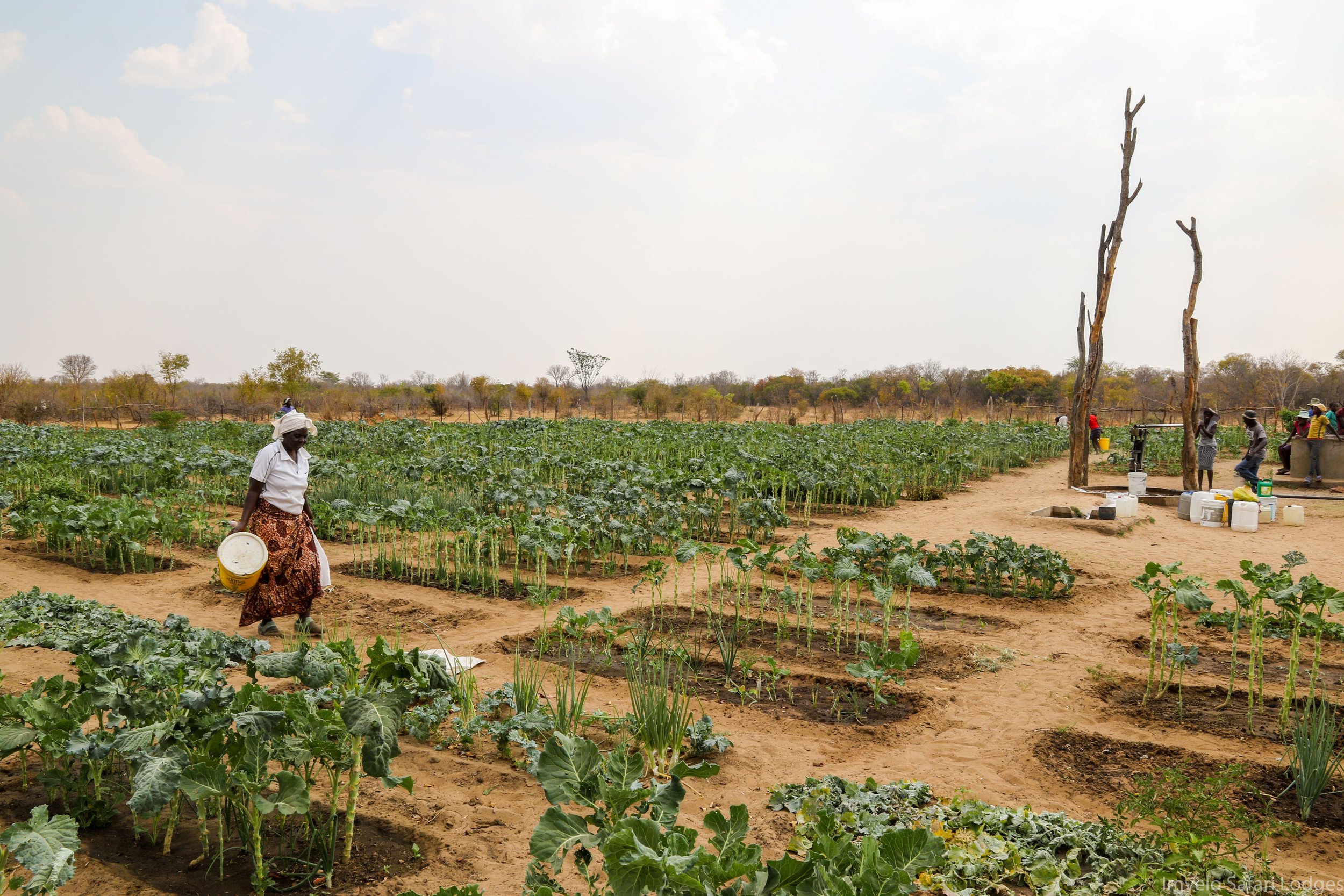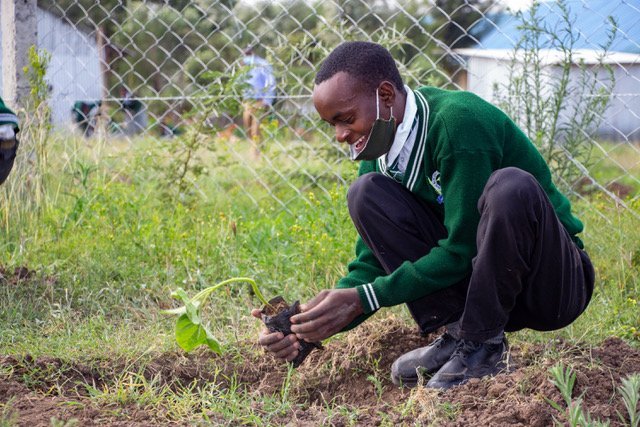
Africa Projects
Africa is home to unique ecosystems and vibrant cultural heritage that are invaluable for their ecological, cultural, and recreational significance. By funding conservation efforts in this region, the ATCF aims to protect these irreplaceable assets from environmental degradation and cultural erosion, ensuring that both local communities and adventure travelers can continue to benefit from Africa's rich natural and cultural landscapes.
-

Climate & Economic Resilience via Bee Fences, KENYA
2025 Grantee | $15,000 | Nominated by Wild Places
Our project involves purchasing beehives and constructing a honey extraction facility to empower local Pokot women by producing high-quality honey, which will increase community income, enhance biodiversity through improved pollination, and reduce human-wildlife conflicts. Additionally, the facility will serve as a tourism attraction, offering visitors the chance to learn about local honey production and the culture of the Pokot community, further supporting sustainable economic development and conservation of local flora and fauna. This project is intended as a model that can be adapted and replicated in other regions, contributing to the long-term resilience and prosperity of communities similar to Mugie.
-

Kayumbura Lion Monitoring Project, UGANDA
2025 Grantee | $15,000 | Nominated by Adventure Life
The lions in Queen Elizabeth National Park are unique. They are one of only 3 populations in Africa that have a culture of climbing trees. If the park loses the last 39 lions this unique behavior will also be lost and will not return even if new lions are reintroduced to the park. Kyambura Lion Monitoring Project conducts an annual large carnivore census and collects data for African lions, leopards and spotted hyenas using a network of vehicles and remote camera traps. The project aims to establish a science-based conservation program that supports the Uganda Wildlife Authority (UWA) in the scientific monitoring and protection of large carnivores, respond to injured animals and human/wildlife conflict incidents, helps to assess the impact of conservation work currently being done, and trains young Ugandans from the Kyambura community in scientific conservation techniques.
-

Watering Wildlife & Communities, ZIMBABWE
2025 Grantee | $15,000 | Nominated by Todos Santos Eco Adventures
The project will help provide water for wild animals in the southern part of Zimbabwe’s Hwange National Park while also supporting the communities in establishing irrigated and fenced communal food gardens. Given this year's drought and the increased competition between people and animals for water and food, these activities will be fundamental in limiting and alleviating human-wildlife conflicts in the area.
-

Protecting the Living Landscape in Conservancies, NAMIBIA
2024 Grantee | $15,000 | Nominated by Todos Santos Eco Adventures
This project will create a haven for wildlife, produce a steady stream of revenue that can be used to manage and preserve the greater landscape, and will also create employment at a local level in addition to a new revenue stream that can be used for general development projects.
-

Protecting People and Mountain Gorillas Through Health Education, UGANDA
2024 Grantee | $15,000 | Nominated by Wilderness Travel
Promote biodiversity conservation by enabling people, gorillas, and other wildlife to coexist by improving their health and livelihoods in and around Africa’s protected areas.
-

Community Rhino Conservation Initiative, ZIMBABWE
2024 Grantee | $15,000 | Nominated by Wilderness Travel & MT Sobek Travel
Ground-breaking collaborative project that has brought white rhinos to communal lands adjacent to Zimbabwe’s Hwange National Park in an effort to (1) rebuild viable populations of white rhinos in the area, (2) establish a buffer zone between the National Park and communities to alleviate human-wildlife conflicts and (3) provide socio-economic opportunities for the communities who are custodians of these rhino.
-

Planting Trees for a Native Future, KENYA
2022 Grantee | $10,000 | Nominated by Wild Places
Planting native trees in a degraded landscape not only stores carbon in the living trees, but also increases soil carbon through the organic matter and vast root network which binds the soil, preventing erosion, and the loss of water and topsoil.
-

Outfitting Rhino Rangers, NAMIBIA
2022 Grantee | $7,000 | Nominated by Pandion Consulting & Facilitation
Planting native trees in a degraded landscape not only stores carbon in the living trees, but also increases soil carbon through the organic matter and vast root network which binds the soil, preventing erosion, and the loss of water and topsoil.
-

The Elephant Express Conservation Bus, BOTSWANA
2021 Grantee | $10,000 | Nominated by Dulabab Travel
The Elephant Express buses educate and promote human-wildlife coexistence by safely transporting vulnerable members of the community through an elephant corridor along which elephants move between key wildlife tourism areas.
-

Fighting Poaching to Preserve Wildlife, KENYA
2021 Grantee | $20,000 | Nominated by Angama Mara
Finding long-term solutions that involve the Maasai communities in conservation efforts to protect their heritage & their futures.
-

Saving Unique Desert Lions, NAMIBIA
2020 Grantee | $20,000 | Nominated by Wilderness Travel
Addressing the conflict between people and wildlife requires the striking of a balance between conservation priorities and the needs of the people who share their land with wildlife.
-

Conserving Chimpanzee-Elephant Corridors through Tourism Partnerships, TANZANIA
2020 Grantee | $20,000 | Nominated by Frankfurt Zoological Society
Establishing a community eco-tourism venture to provide long-term, sustained financial benefits to communities in key chimpanzee–elephant wildlife corridors
-

Solar Water Hole for Community & Wildlife, ZIMBABWE
2019 Grantee | $20,000 | Nominated by Wildland Adventures
Helping to sustain water resources vital to wildlife and communities in Zimbabwe’s largest national park.
-

Permanent Settlement to Batwa Pygmies, UGANDA
2018 Grantee | $16,500 | Nominated by Volcano Safaris
Creating a permanent settlement for the Gahinga community of Batwa pygmies. A site of about ten acres of land was acquired next to the Mgahinga National Park in Uganda, and the construction of homes for 18 families (105 adults and children) is well underway.
Other Project Destinations





